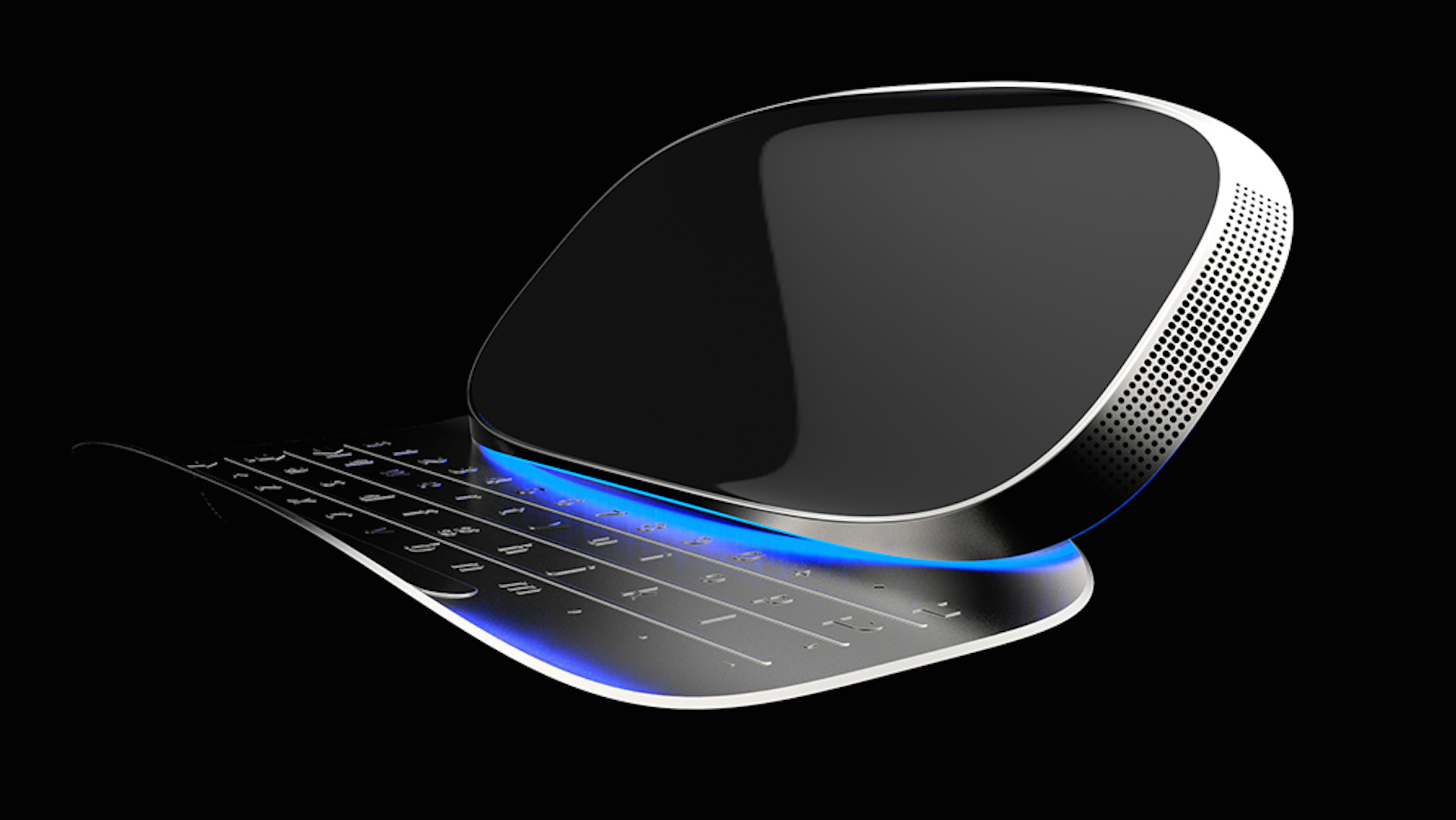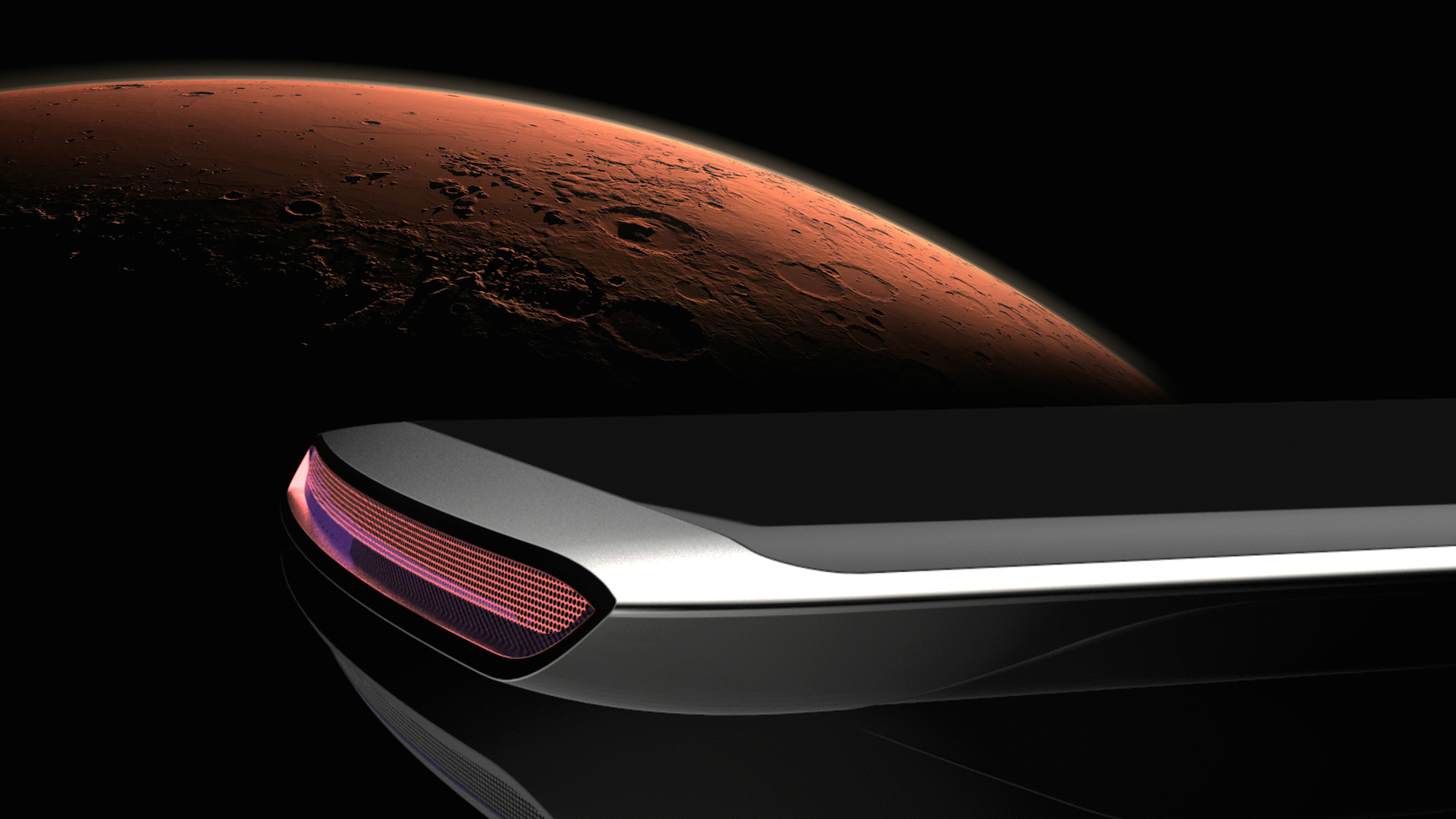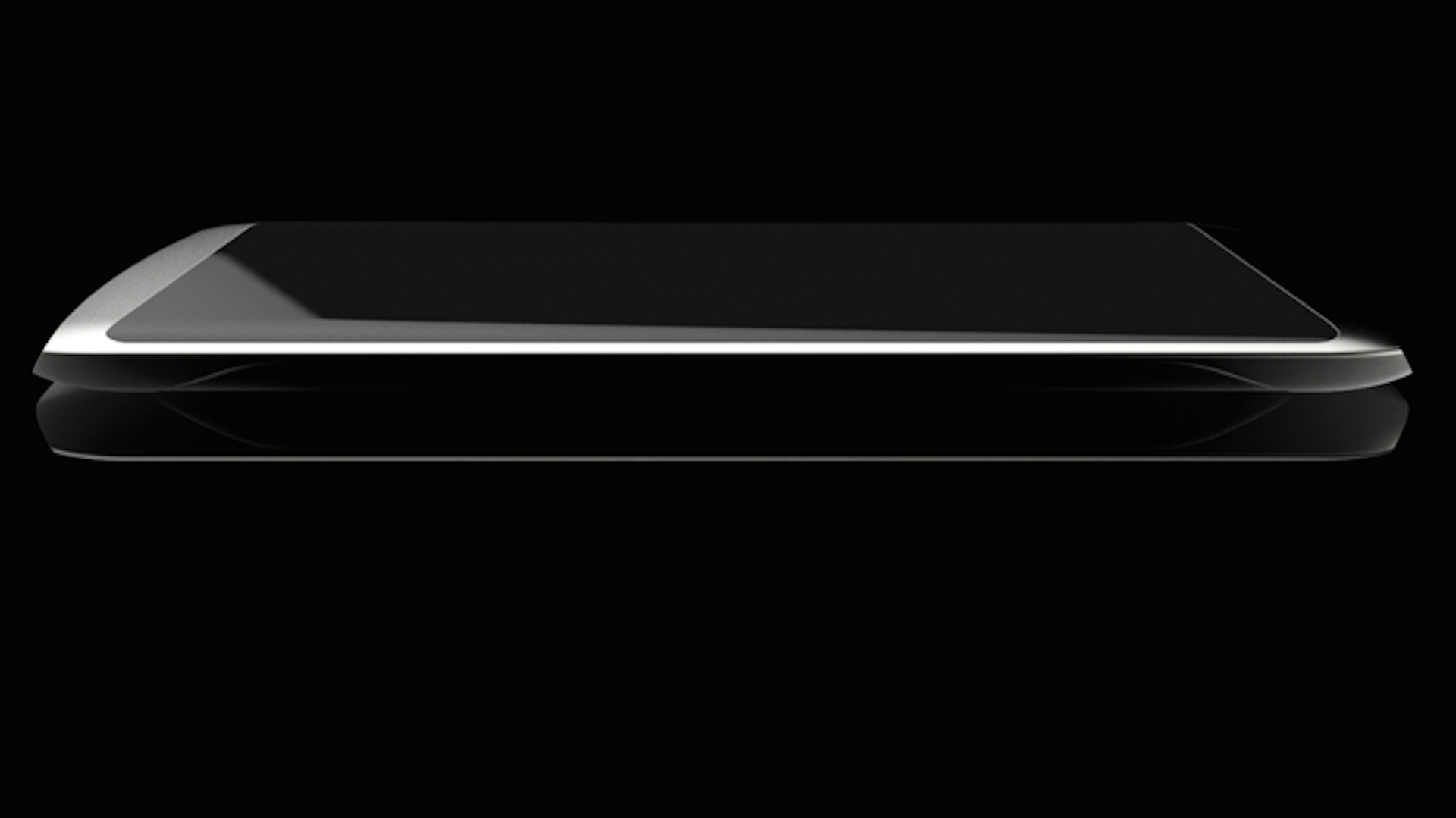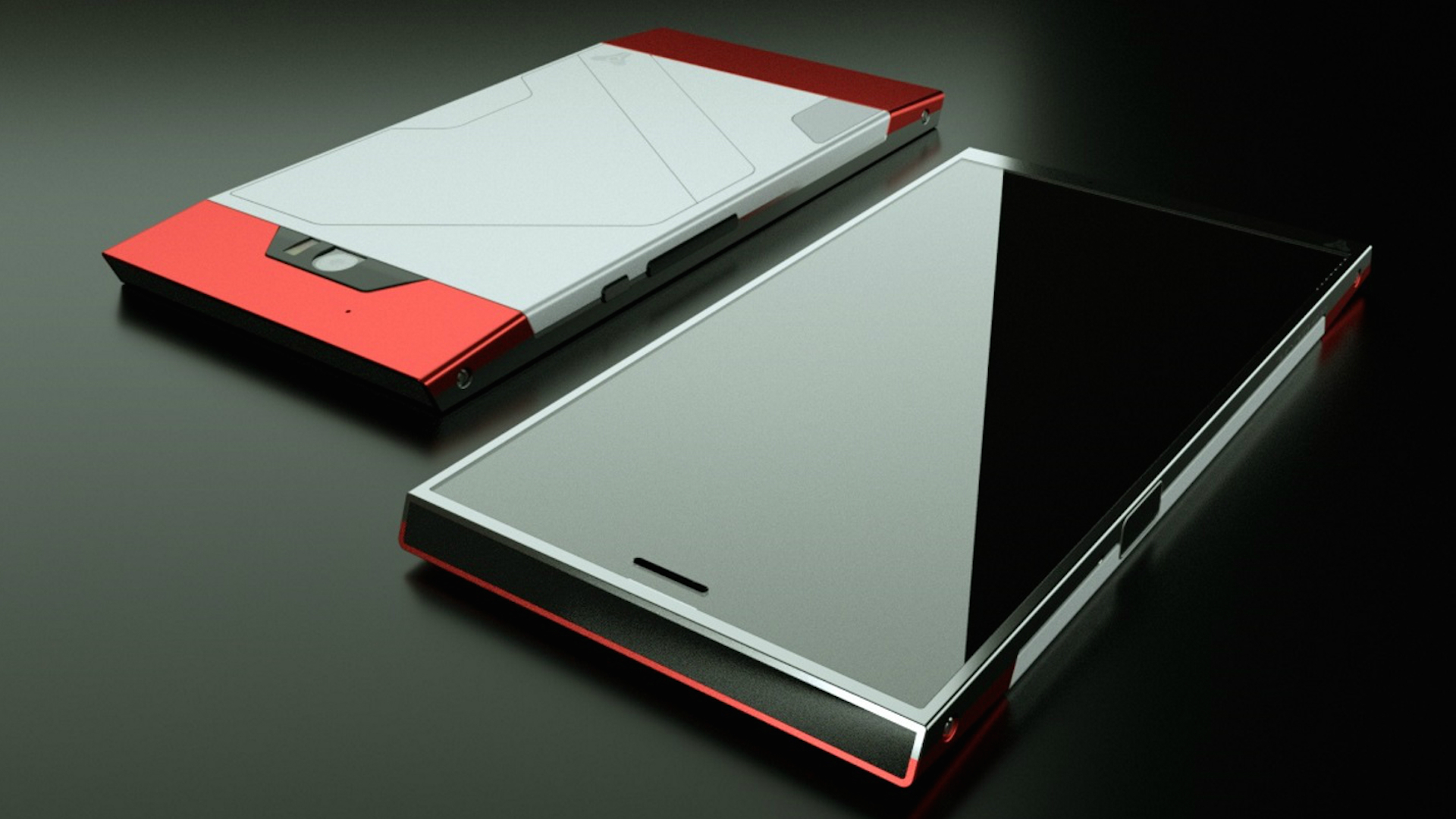The most powerful smartphones ever are coming from a company you've never heard of
"We're a small, young company and we have nothing to lose."

Sign up for breaking news, reviews, opinion, top tech deals, and more.
You are now subscribed
Your newsletter sign-up was successful
For a company with almost no track record in the smartphone industry, Turing Robotic Industries (TRI) knows how to make an impact.
Last year the company generated plenty of buzz with the announcement of its debut phone: a super-secure handset fashioned from virtually unbendable liquid metal. Then earlier this month it revealed the specs of its two new devices - the Cadenza and Monolith Chaconne - to almost overwhelming skepticism and derision.
The response is largely understandable as you glance through the proposed spec sheets for these futuristic super-phones. The Cadenza boasts two (unannounced) Qualcomm Snapdragon 830 chipsets, 12GB of RAM, 1TB of storage and a 60 megapixel camera, while the Monolith Chaconne goes one better by including three 830 chipsets, 18GB of RAM and a slide-out keyboard.
Both are constructed from a Graphene Oxide composite and include Hydrogen fuel cells as part of their hybrid power system.
"People need proof"

Despite the dismissive response from the tech media, TRI CEO and Chief Architect Steve Chao remains unfazed. "I think the reaction was exactly as you should expect. People need to see proof before believing."
Proof is something that TRI has struggled with over the past twelve months. Upon announcing its first phone, the company opened pre-orders with the promise that the handset would be delivered by Christmas 2015.
That date soon evaporated, as did the company's commitment to Google's Android, with the largely untested Jolla Sailfish OS being drafted in as a replacement.
Sign up for breaking news, reviews, opinion, top tech deals, and more.
Another delay pushed the handset further into 2016, with the final product now expected to arrive before the end of the year.
The scant consolation to those who handed over more than $600 a year ago is the fact that their orders have been upgraded to the Turing Phone Dark Wyvern model and the company is currently shipping out free-of-charge "evaluation" units before the final production edition arrives - which will include an improved Snapdragon 821 chipset.
"I'm not very concerned about the glitches we've encountered," says Chao when quizzed on whether or not such problems will impact the firm's future projects.
"Our existing customers are highly valued; not only have their orders been upgraded at no additional cost but they have also been automatically enrolled into the Turing Elite program in which they will enjoy far cheaper prices for both the Cadenza and Chaconne when they become available."
"The biggest challenges in smartphone material history"

It's certainly been a bumpy road to market for TRI's first product, but the fledgling firm has arguably encountered issues which even larger and more established companies would struggle with - and as the recent Galaxy Note 7 debacle proves, nobody is perfect.
"I should stress that TRI is entirely funded by its partners without any venture capital funds," Chao explains.
"We had limited resources and we were working to solve one of the biggest challenges in smartphone material history - liquid metal. The delays largely came from the formulation of liquid metal; now we've done it and have harnessed the techniques in producing commercialized liquid metal, we can apply the same methodology to other materials and production processes in the pipeline in order to save time."
The Cadenza and Monolith Chaconne may be little more than specs on a sheet of paper at present, but Chao is keen to stress that he hasn't simply grabbed these numbers out of thin air.
These two phones represent years of research and development, guided by Chao's belief that we're about to enter another phase of seismic change within the mobile tech industry, just like when smartphones took over from dumbphones.
"You can view the specs as two or three smartphones connected with each other," he says. "The challenge is how to make it all fit into a small handheld chassis. We have the schematics of how it should work and the ultimate prototype will be available in the not-so-distant future."
Overkill?

But does a phone really need more than one chipset driving it? And when your average PC only has around 4GB of RAM, surely 12GB in a phone is overkill? Not in TRI's opinion.
"Phones are no longer just phones, they have evolved from a calling device to an all-function digital device that resembles the combination of a desktop computer, camera, GPS navigator, game console and more. We have yet to see the full potential of a phone," says Chao.
"You should look into the future, not the present or the past. One day, phones will surpass the capabilities of desktop computers in both computational power and application processing capabilities. This black hole named 'Phone' will continue to suck in functions from other digital devices until it realizes the vision of Alan Turing's Turing Machine."
Both of TRI's proposed phones mark a massive shift in processing power when compared to modern smartphones, but is it truly necessary to tear up the rulebook and try to shoehorn in more than one chipset when your average consumer is perfectly happy with the gradual evolution of the mobile phone?Is there truly a genuine calling for this kind of raw power, or is it simply boldness for the sake of boldness?
"Consider this – Apple's latest chipset, the A10 Fusion, is superior to the current Snapdragon," replies Chao.
"The Cadenza and Monolith are due to be released in 2018 – at that time, a dual Snapdragon 830 setup will probably be on par with Apple's A11 or A12.
"Why do we need so much power? You really need to drill down into the actual processor performance. A single Snapdragon isn't going to compete with Apple. According to my own calculations, the A10 Fusion is equivalent in power to 1.5 Snapdragon 820s.
"I think by the time the A11 is out, it will be around 1.3 times more powerful than the new Snapdragon 830, so there's always that shortfall to address. Having two Snapdragon 830s connected via the WiGig computation, we're bound to lose a bit of computational power because it's not all in the same chip, unlike Apple's option. If you use just a single 830 chip, there's no way you can beat the iPhone."
This gazing into the future is all well and good, but it's worth remembering that Qualcomm hasn't officially announced the Snapdragon 830 yet, despite TRI confidently including it in the spec list for both phones.
Chao accepts that this move will lead to a healthy amount of skepticism, but insists that his company – just like any other hardware manufacturer – is privy to developments behind the scenes. "Both Samsung and Taiwan Semiconductor Manufacturing Company are ready for volume production of 10nm chip technology," he explains. "TSMC even has 7nm and 5nm in the works. The Snapdragon 830 will be old news by summer 2017."
With such monstrous specs, price is obviously going to be a concern for both handsets, but Chao admits that TRI isn't aiming for the same market as companies such as Samsung, LG and Sony, and it is focused almost entirely at the high end of the price spectrum.
"If a high end luxury phone can be sold at $10,000, I don't see why we can't contain ours at a reasonable price," he says. "The price of these phones would be far cheaper than the price of two or three high end phones put together."
Learning devices

Much has been made of the claim that these two handsets will be the first of a new breed of "learning" devices, and it is perhaps this aspect of TRI's work that could potentially have the most dramatic effects on the mobile industry as a whole.
"We apply various algorithms within neural network research to go deeper into the realm of 'computational intelligence', an intelligence that can not only learn but is capable of taking partial known factors to pattern match for the best forecast. It is our vision in the era of machine consciousness," says Chao.
At the heart of this new era - TRI hopes - is the custom Swordfish OS, which is based on Jolla's Sailfish, itself an evolution of the abandoned Nokia MeeGo project.
"Swordfish will be the world's first mobile OS that runs multiple CPUs, hence the fact that it'll be coming to the Cadenza, Monolith and Turing Robotic Phone Capriccioso, a third phone which we'll officially announce later this year," he adds.
Based on Linux and offering compatibility with Android applications, Sailfish OS currently powers the first Turing Phone as well as a handful of other devices, but it can hardly be seen as a genuine competitor to Google and Apple.
Jolla and TRI clearly see the reciprocal benefit of working together, and Swordfish could prove to be the step forward that Jolla - which had to layoff half its workforce late last year in an attempt to restructure its debt - so badly needs right now.
As Chao himself says, people require proof before believing lofty claims, and at the moment the only proof the world has that TRI - which has recently relocated to Nokia's old Salo R&D facility in Finland - can pull any of this off is a single, much-delayed smartphone.
However, he's keen to stress that he wants his company to be at the pinnacle of the industry, not just another also-ran which is making up the numbers.
"TRI isn't interested in competing with Android phones from the likes of Huawei and Samsung," he says.
"I think one day we'll go up against Apple, perhaps in the next few years. We're still a small company and we don't have the luxury of our own chip design team. In future TRI may be able to design its own chip, but before that day we're looking to use multiple CPUs in order to mimic cell architecture."
Despite his extravagant predictions, Chao is a realist and knows full well that it's impossible to make such bold statements in the tech industry without a few testing questions being asked and petty insults thrown.
"We're a small, young company and we have nothing to lose," he says. "We're here to disrupt the industry and create significant change. Innovations come mostly from younger companies, like ours.
"What I will say to those who want to cast doubt on what we're doing at TRI is be kind, stay curious, and have an open heart for those who are insane enough to want to change the world."